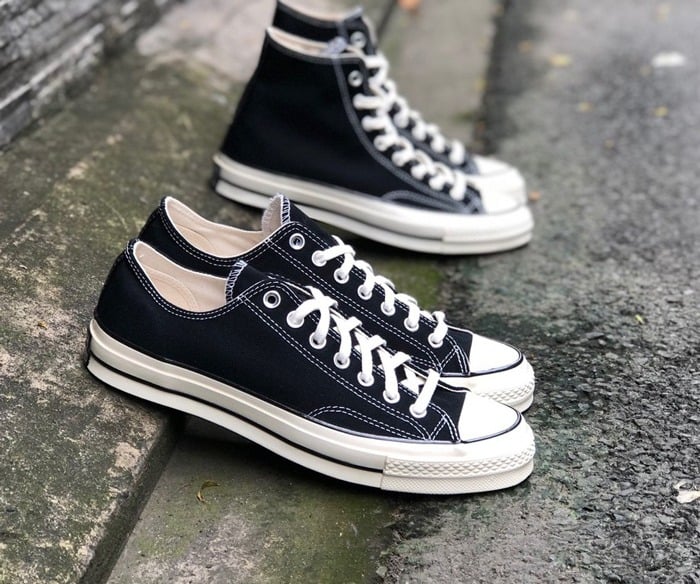Wallet
In ancient cultures, wallets were seen as a symbol of an individual’s wealth. An empty wallet signifies financial shortage, while gifting a used wallet implies a transfer of wealth from one person to another.
When giving a wallet as a gift, it is customary to place a few banknotes inside as a symbol of wealth and good fortune, transforming the meaning of an otherwise empty wallet. This gesture also conveys best wishes and care for the recipient. Such a gift not only holds material value but also embodies sincere emotions and well-wishes.

Wallets have long been associated with wealth and prosperity.
Aquarium
Fish are often considered symbols of good luck, and thus, aquariums are a popular gift choice. However, gifting an aquarium is frowned upon in some cultures. In Feng Shui, aquariums represent wealth and prosperity.
Similar to the concept of “God of Wealth,” aquariums should not be given lightly. Even if you intend to give one as a gift, the recipient may hesitate, fearing that you are taking away your family’s good fortune.
Antique Clock
Clocks symbolize the passage of time, and as time passes, we age and mature. Therefore, gifting a clock, especially to elderly family members, is generally discouraged. In Chinese, the phrase “gifting a clock” sounds similar to attending a funeral, carrying negative connotations.
Pillow
In ancient times, pillows were considered symbols of status and good luck, as well as highly personal items. By gifting a pillow without consent, you might be taking away the recipient’s luck in their career or business.
In those times, “sharing a bed” was reserved for married couples, and it was uncommon for unmarried men and women to do so. Gifting a pillow to someone could send a confusing message and lead to misunderstandings.
Shoes
Firstly, the word for “shoes” in Chinese sounds similar to the word for “evil,” so gifting shoes is believed to bring bad luck to the recipient.
In ancient times, shoes were seen as a symbol of life’s journey and new beginnings. For women, in particular, shoes are an essential part of their attire. Exposing one’s feet was often considered inappropriate and taboo. Traditionally, a husband was only allowed to see his wife’s bare feet after their wedding.

The word for “shoes” in Chinese has an unfortunate similarity to the word for “evil.”
Additionally, shoes are associated with dirt and disorder, as they are constantly in contact with the ground. Gifting shoes could be misinterpreted as an attempt to send bad luck and show disrespect to the recipient, leading to a loss of respect.
Umbrella
You may think that gifting an umbrella signifies your willingness to protect and shelter the recipient from the sun, rain, and dust, indicating that you will always be by their side and take care of them.
However, according to the Yin-Yang and Five Elements theory, the word “umbrella” in Chinese means “scatter,” which sounds similar to the word for “separate.” Therefore, gifting an umbrella could imply the beginning of a separation, potentially leading to a permanent distance between you and the recipient.
Pears
Many young people today may not realize the significance of gifting pears, seeing them as just ordinary fruit. However, in the past, it was customary to avoid gifting pears because the word “pear” sounds similar to the word for “separate” or “part.”
This rule still holds today, and pears are rarely included in gift baskets or sets. Although it is just a superstition, no one wants to be associated with such bad luck. Therefore, when choosing gifts for others, it is best to avoid including pears.
Unlocking the Secrets of Success: The Power of a Man’s Nose and Its Impact on Wealth
“Unveiling the Secrets of Success: The Power of Facial Features in Wealth Attraction.
In the realm of physiognomy, it is believed that certain facial characteristics hold the key to unlocking a life of abundance and prosperity. Specifically, those who possess one of the three auspicious nose shapes are destined for a journey of financial success and opulence. Read on to discover how these unique traits are thought to influence one’s path to wealth and fortune.”
Is Money Plant Suitable for Your Chinese Element? Discover the Lucky Charm That Brings Peace and Wealth to Your Home.
The Snake Plant, also known as the Mother-in-Law’s Tongue, is a popular houseplant with a unique and exotic appeal. With its striking appearance and easy-care nature, it has become a favorite among plant enthusiasts and homeowners alike. This resilient plant is believed to bring peace and prosperity to the household, attracting good fortune and wealth. Its presence is thought to invite the blessings of the God of Wealth, ensuring a harmonious and abundant home.
“The Ancestral Home: Preserving Prosperity by Emptiness in Three Key Spaces”
The ancient wisdom advises keeping these three places clean: your home, your heart, and your mind. By tending to these spaces, you invite prosperity and good fortune into your life. A tidy home attracts positive energy, while a pure heart and a clear mind create a path for blessings and abundance to find you. Remember, true wealth goes beyond material possessions; it is a state of being where contentment and peace reign.





































